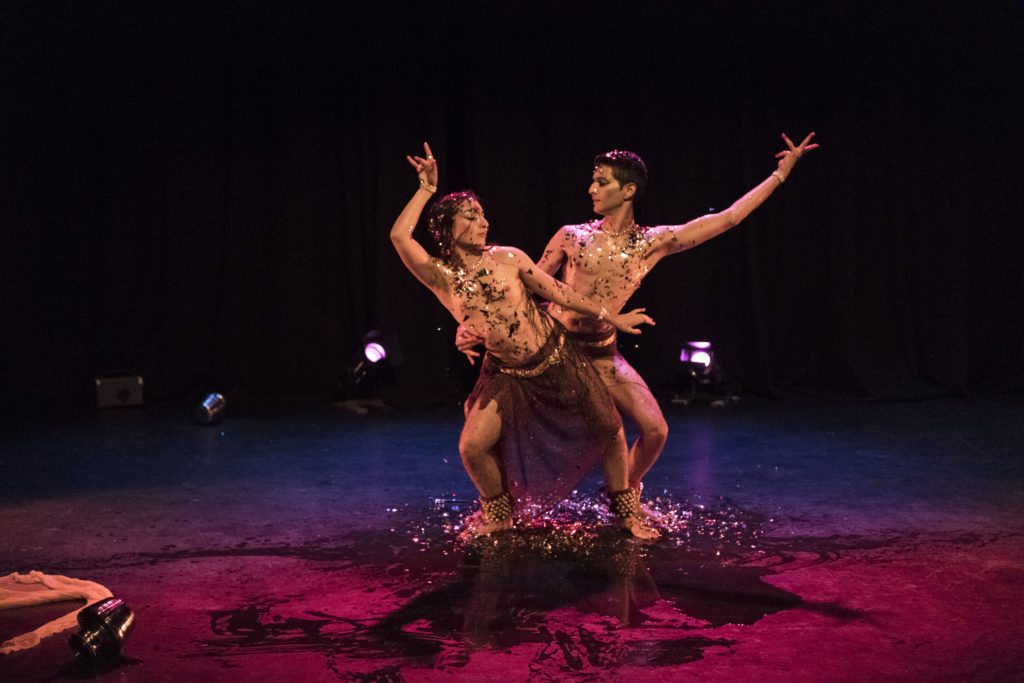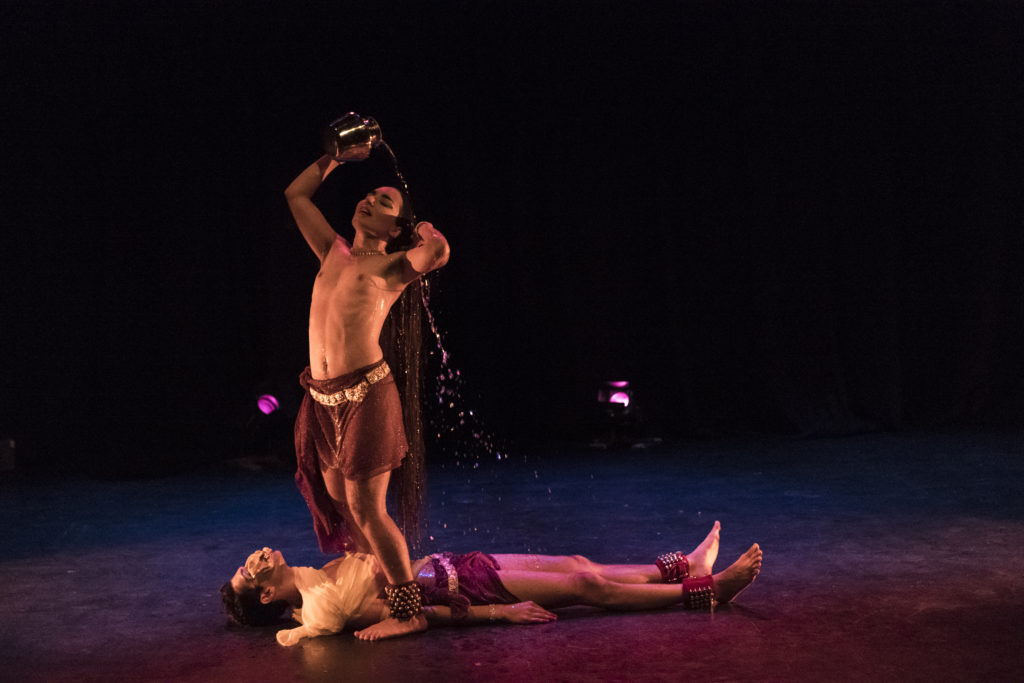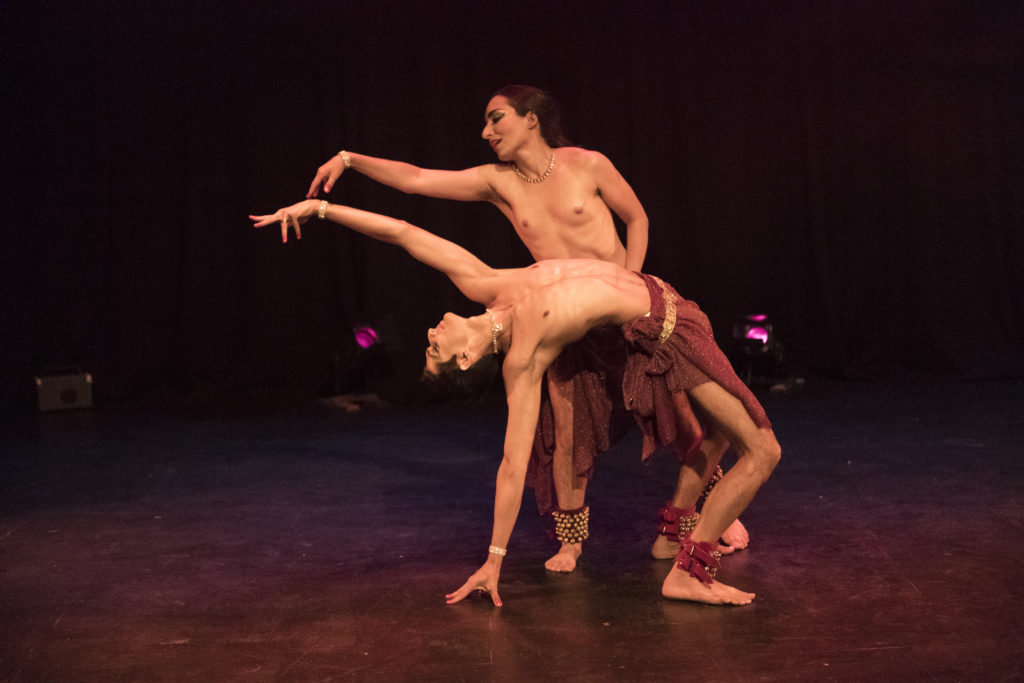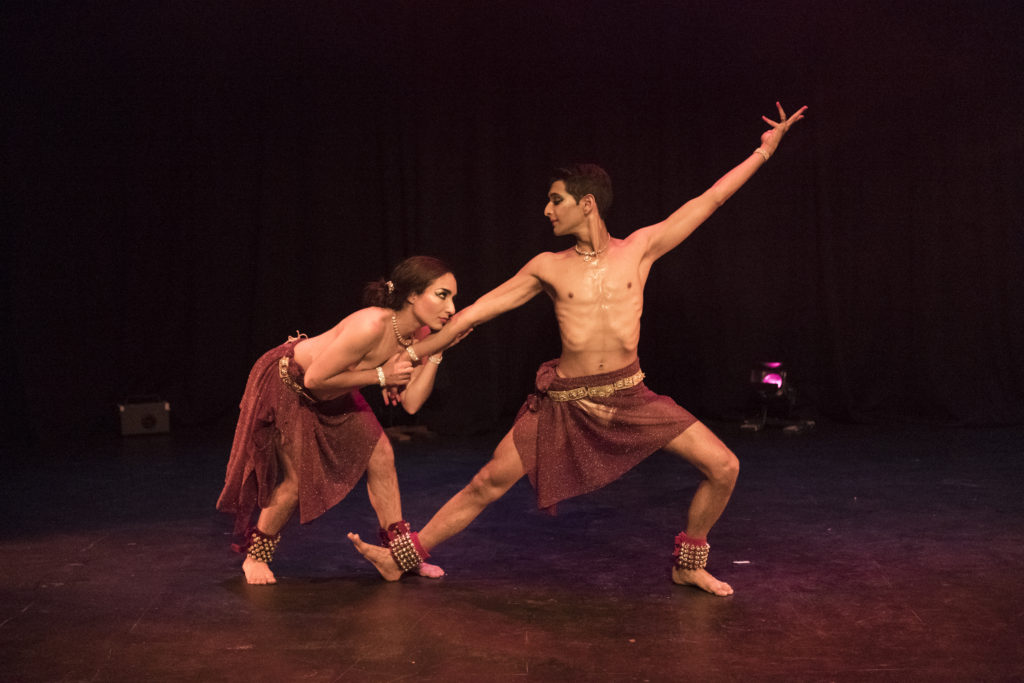The humidity in the Brunswick Mechanics Institute on the January 27th—the night I saw Bent Bollywood for the first time—echoed a sort of sultry mugginess I knew well. It was the same one that fastened itself to my skin as I scooped dal with my hands a year prior in the stifling kitchen of my relative’s Hewadiwela orphanage, situated deep in Sri Lanka’s hillside. Despite Raina Peterson and Govind Pillai being unable to control the weather (a superpower I wouldn’t put past them, quite frankly), the humidity—reminiscent of the South Asia I knew—proved an unapologetic reminder that we were in their space now: a space they had carved out together and alone. A space they had decorated with lace, glitter and sweat, where whiteness, gender and sexuality deteriorated before us.
For mixed-race folk, the culture we yearn for can sometimes feel like its very own throbbing hangover. It’s as if old artefacts of our parents’ (and grandparents’) fanatical youth can only survive for us as a kind of head (and heart) ache: the sort of pain where memories that don’t necessarily feel like yours circulate for a moment, only to then disappear.
The Sri Lanka I know is the sort of Sri Lanka that doesn’t exist nowadays. Of this, I am certain. It is the one where once upon a time, in tired Colombo homes, snakes enfolded their scaly bodies around fans in the dead of night; snakes that frightened my grandmother as she lay beneath them trying to sleep as a child.
“There is a progressive youth culture in Sri Lanka that a lot of mixed-race people, or even just those that grew up here, don’t and can’t possibly understand,” a Sri Lankan friend of mine reflected once, inhaling a cigarette I had rolled for him at a blaring party in the northern suburbs some time ago; the kind of event thronged with white college students, ironic 90s bangers, and glitter. So when Peterson and Pillai drenched their mighty, South Asian bodies in their very own glitter, and cavorted about on stage with an unmatchable energy, I smiled to myself, satisfied. This is what it means to understand one’s culture in Australia, and where one sits within it.

Embedding slivers of classical Indian dance into their very own modern routine, and seducing their audience with extravagant Bollywood gesticulations, Peterson and Pillai acknowledged this dissonance. Pillai plays cheekily with a pair of Bonds underwear: a symbol that feels kitsch at first, but an important reminder of what—and who—it is we are watching.
Both Peterson and Pillai took the India they had inherited, dissected it for all to see, and demanded they not be forgotten in the process: as inheritors, as creators, as dancers, as lovers.
As much as Bent Bollywood interrogates whiteness full stop, it also self-assertively tackles how whiteness has come to define how sexuality and gender is understood in the Western world. Peterson and Pillai offer themselves to us for consumption: Pillai first (as Peterson’s twink) and Peterson second, as a powerful, genderless God(ess). Peterson demands that for every passing thought of ours that finds their beauty enticing, we must be interrupted by our admiration of their being handsome and robust as well.

Their virility is purposely bewitching. In fact, Peterson’s vast and at times conflicting performance almost feels like the driving force behind Bent Bollywood; they never once let their audience off the hook. Think you know what it means to be a man, a woman, and perhaps both or neither? Think again, their body hisses as it moves in and out of Mohiniyattam dance, their eyes somehow managing to lock intimately with every single sweaty, mesmerised audience member.
In conversation with Nosheen Iqbal of The Guardian, Maya Arulpragasam (more commonly known as M.I.A) left niceties behind, opening up their dialogue with “The Guardian said that you couldn’t shag to my record.” Iqbal expected nothing less from the forthright British Sri Lankan pop sensation, and—after seeing Peterson and Pillai’s brilliant performance—I will know never to expect conventionality from them, either. M.I.A’s work is, as Iqbal eloquently describes, “abrasive, compelling, underpinned by sex”; a phrase I could’ve (and did) copied-and-pasted into my own review of Bent Bollywood, and felt sufficiently captured the show’s spirit. It seems apt, then, that an M.I.A track was selected to feature in Peterson and Pillai’s choreography.

These two are smart beyond their bodies. They borrow from the South Asian best; shedding their warm skin of the whiteness that would’ve led them in another direction, away from the stark dominance of M.I.A’s sound or Allahrakka Rahman’s soothing compositions.
Unlike the memory of Sri Lanka I have devised in my head, the one where snakes writhe and dance on the fan above my grandmother’s childhood bed, Bent Bollywood gave me a real memory. One that sees me for who I am, acknowledges my origins, and invites me into our very own celebration: mine, Peterson and Pillai’s.
Right at the end of the show, after the unravelling, the dancers’ two bodies collapse and contract into one another, and—like them—I am left with closure. Outside the Brunswick Mechanics Institute, the air is cool again.
About the author
Madison Griffiths is a writer, artist and poet whose work has been published in VICE, SBS, Overland, Daily Life, Kill Your Darlings, Pedestrian, Catalogue Magazine, Catapult and Going Down Swinging, amongst others. Last year, she was shortlisted for the 2017 Overland Fair Australia Prize. Her work revolves predominantly around issues concerning women, mental illness, and race.



